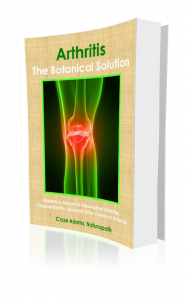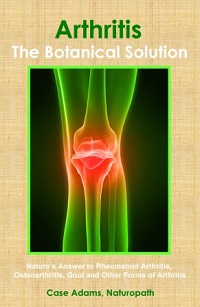Rheumatoid Arthritis Linked to Gut Bacteria, Microbiome
Most of us figure our joints are too deep inside the body and too far away from our intestines to be affected by our intestinal bacteria. Think again.
Arthritis incidence is increasing dramatically. (See this report on arthritis incidence.) Could this increase be linked with the increase in intestinal problems and food sensitivities experienced over the past two decades? The scientific answer is yes.
In this article
Intestinal dysbiosis linked to rheumatoid arthritis
A team of leading medical researchers has determined that new cases of rheumatoid arthritis occurs following intestinal dysbiosis and the overgrowth of a particular gut microbe.
The researchers – from the New York University School of Medicine, Cornell Medical College, Italy’s University of Trento, Harvard School of Public Health, Spain’s University of Valencia, Oxford and the Howard Hughes Medical Institute – found that the growth of a bacteria called Prevotella copri within the gut was linked with newly onset rheumatoid arthritis.
The researchers used DNA analysis of the microbiome (the gut’s total bacteria load) together with specific analyses to relate the overgrowth of this particular bacteria.
But the growth of the bacteria didn’t happen in isolation. In a predominance of the cases, the bacteria overgrowth was related to the loss of colonies of healthy probiotic colonies – an event called dysbiosis.
The researchers based their findings upon DNA sequencing of 114 stool samples from patients with rheumatoid arthritis and healthy control subjects. This indicated the total DNA of the gut’s microbiome: The general species make up of intestinal bacteria. The researchers then took 44 of the samples and analyzed them with more detail to isolate the particular species of bacteria at the root of the dysbiosis.
Using further analysis of the genetic composition of the patients’ microbiome together with the patients’ own DNA, it was established that rheumatoid arthritis is linked with the overgrowth of the Prevotella copri bacteria along with dysbiosis.
The Shared Epitope between inflammation and intestinal bacteria
The genetic relationship between rheumatoid arthritis and certain genes has been called “shared epitope.” Other research has linked certain alleles with rheumatoid arthritis. Genetic changes within the body’s DNA have also been linked with changes in the makeup of the gut’s intestinal bacteria.
This research has also found a link between gene sequences and the body’s release of certain antibodies and inflammatory mechanisms.
This new study also answers part of the mystery produced by previous research that has linked intestinal bacteria with arthritis.
Microbiome also linked to inflammatory conditions
The combined makeup and DNA of the gut’s intestinal bacteria is the microbiome. This is receiving massive interest among medical researchers at the moment and serves as the cutting edge of medical research.
Some of these studies have found certain types of microbiome DNA produces increased levels of inflammation. In one, the researchers linked dysbiosis with antibiotic intake and increased infections and inflammation. In another, from the University of Colorado, researchers found that genotype changes in intestinal bacteria occurred with intestinal inflammatory conditions such as Crohn’s disease and ulcerative colitis.
REFERENCES:
Scher JU, Sczesnak A, Longman RS, Segata N, Ubeda C, Bielski C, Rostron T, Cerundolo V, Pamer EG, Abramson SB, Huttenhower C, Littman DR. Expansion of intestinal Prevotella copri correlates with enhanced susceptibility to arthritis. Elife. 2013 Nov 5;2(0). doi:pii: e01202. 10.7554/eLife.01202.
Mathis D. A gut feeling about arthritis. Elife. 2013 Nov 5;2(0). doi:pii:e01608. 10.7554/eLife.01608.
Ronninger M, Seddighzadeh M, Eike MC, Plant D, Daha NA, Skinningsrud B, Worthington J, Kvien TK, Toes RE, Lie BA, Alfredsson L, Padyukov L. Interaction analysis between HLA-DRB1 shared epitope alleles and MHC class II transactivator CIITA gene with regard to risk of rheumatoid arthritis. PLoS One. 2012;7(3):e32861. doi: 10.1371/journal.pone.0032861.
Frank DN, Robertson CE, Hamm CM, Kpadeh Z, Zhang T, Chen H, Zhu W, Sartor RB, Boedeker EC, Harpaz N, Pace NR, Li E. Disease phenotype and genotype are associated with shifts in intestinal-associated microbiota in inflammatory bowel diseases. Inflamm Bowel Dis. 2011 Jan;17(1):179-84. doi: 10.1002/ibd.21339.




















